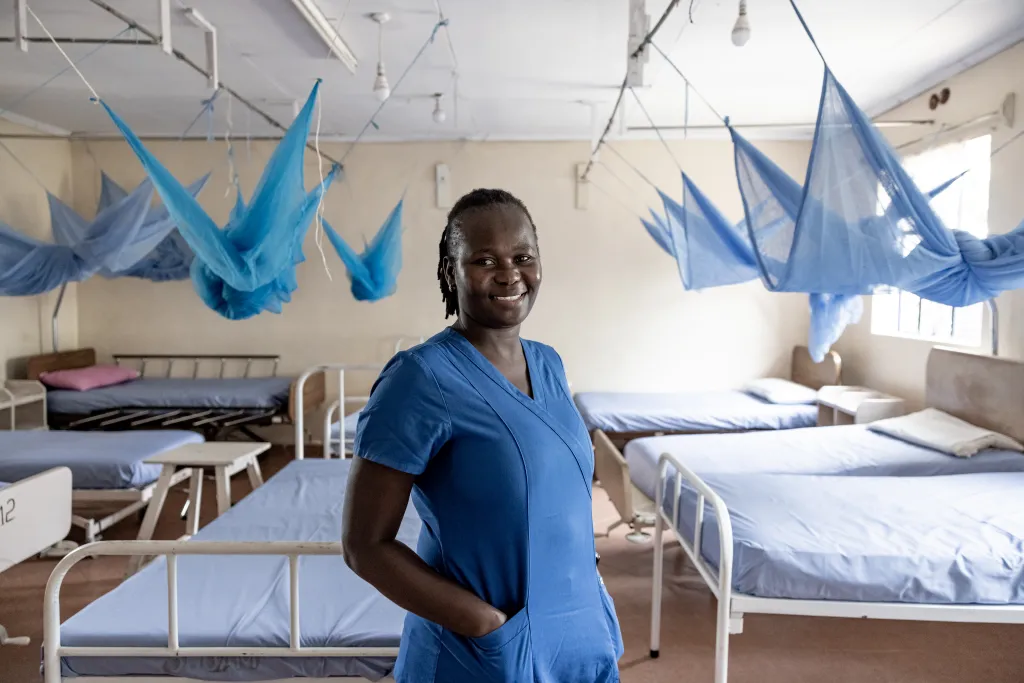Accelerating Access
A Game Changer in Combatting AMR?

By Thomas Breuer, Chief Global Health Officer, GSK
In today’s interconnected world, the challenge of antimicrobial resistance (AMR) knows no borders. It is a global issue that requires a concerted effort from all stakeholders to combat its devastating impact on public health.
The conversation on AMR has long been synonymous with high income settings. True, AMR is a global problem, however, AMR is tracked most closely in clinical settings and high-income countries1, yet lower-income countries bear the brunt of AMR’s disproportionate burden2. Drug-resistant bacterial infections contributed to nearly five million deaths in 20193, with the highest burden in lower-income settings. In tandem, the impact of climate change is exacerbating the issue, by creating an environment conducive to the transmission of infectious diseases4.
In addition to the high burden of infectious diseases, several factors contribute to AMR in lower-income countries, including poor infection prevention and lack of control protocols in healthcare settings and unreliable supply of drugs, which contributes to inappropriate use of antibiotics. Weak surveillance capabilities, limited quality laboratory capacity and poor access to diagnostics contribute to a dearth of data to support evidence-based decision making.
AMR occurs when bacteria, viruses, fungi and parasites no longer respond to medicines, leading to infections becoming difficult or impossible to treat, increasing the risk of disease spread, severe illness and death.5
Why has AMR become such a pressing concern?
AMR causes over 1 million deaths per year, could cost almost 40 million lives by 2050, and the majority of the burden is in lower income countries6.
Failure to address this situation could have far-reaching consequences for patients and healthcare systems worldwide. It is a reality that is set to undo critical progress made towards universal health coverage and the Sustainable Development Goals. So, what are some of the actions we can take now to proactively address the threat of AMR to our health, the health of our families, and ultimately, global health?
At GSK, we’re proud to have one of the largest AMR-relevant pipelines in the industry, with over 30 related projects across medicines and vaccines. Yes, vaccines! Having a positive impact on AMR is more than the appropriate use and access to antibiotics. Vaccines prevent diseases in the first place and therefore are a meaningful and impactful tool in the toolbox to fight AMR. GSK is not only an innovator in the space of AMR, we are actively supporting lower income countries with vaccines on a day to day basis. Since 2010, we have provided more than 1.2 billion doses of vaccines at our lowest price tier to UNICEF making use of the Gavi funding mechanism. However, we know that innovation alone is not enough. Partnerships have long played a crucial role in finding solutions to global health challenges.
To provide a real-world example, we are investing in the Global Antibiotic Research and Development Partnership (GARDP) over the next three years. Alongside nine other public and private partners, and ahead of the UN High Level Meeting on AMR in New York this September, we as a group committed EUR 60 million in an innovative antibiotic R&D and Access partnership. Through GSK’s investment of EUR 4.5 million, our aim is to strengthen access to antibiotics through various mechanisms and programmes that will support development of a sustainable ‘access ecosystem’ in diverse settings with high AMR burden and limited resources. Our funding will enable GARDP to develop a multi-country access and implementation network for rapid introduction and appropriate use of antibiotics in the hospital and community settings in five African countries. The networks will focus on developing introduction and stewardship policies and practices to support robust new antibiotic adoption and use of current antibiotics.
By ensuring that everyone has access to effective antibiotics and vaccines, we can prevent the spread of drug-resistant infections and protect vulnerable populations.
To conclude, I firmly believe that no single entity can solve the complex issue of AMR alone. It requires a collective effort, collaboration between public and private players to bridge the gaps between research, development and access, and GSK is proud to be part of the solution. By improving safe, appropriate and equitable access to antibiotics and vaccines in lower-income countries, we can make significant progress in reducing the burden of AMR.
References
1 Nature, May 2022 A bottom-up view of antimicrobial resistance transmission in developing countries | Nature Microbiology
2 The Access to Medicines Foundation, “How Can Pharma Get the Few Promising Drugs in Development to Patients Battling Superbugs, May, 2024 https://accesstomedicinefoundation.org/medialibrary/240521_access-to-medicine-foundation_r&d-report_final.pdf
3 World Health Organization, November 2023 https://www.who.int/news-room/fact-sheets/detail/antimicrobial-resistance
4 Nature Climate Change, “Over half of known human pathogenic diseases can be aggravated by Climate Change, 8 August 2022 https://www.nature.com/articles/s41558-022-01426-1
5 World Health Organization, September 2024 World leaders commit to decisive action on antimicrobial resistance: World leaders commit to decisive action on antimicrobial resistance
